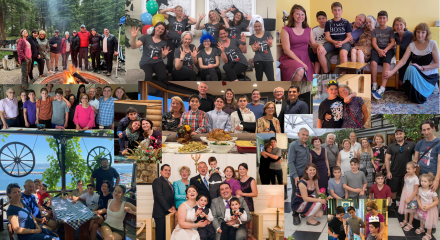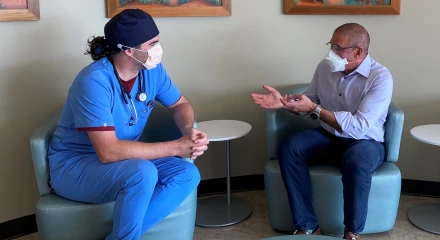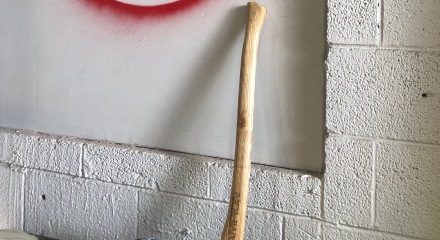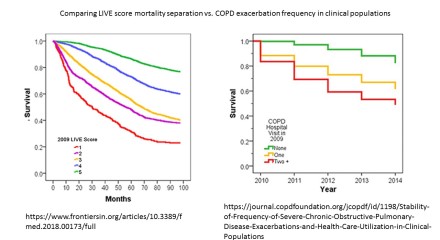From Crisis to Health: Lessons from the Pandemic
Over the last year I had the privilege to complete the Stanford Graduate School of Business LEAD program. At the annual conference for LEAD, I had the privilege of thinking about the previous few years shared some lessons as we move forward. Here’s a link to my talk: Dr. Denitza Blagev – https://www.youtube.com/watch?v=NPxErfv6cq8 Below please find … Continue reading
#ATS2022 – The American Thoracic Society Meeting
We went to talks about the science, but also about the challenge. Holding that we are mothers and also doctors and that we felt we failed at both. We failed at so many things. But we didn’t fail. Because we were there. And here we are. Holding that we took calls about who gets the last ECMO bed or the last ICU bed. Holding these decisions and feeling the weight of it and the guilt, and also holding other places, where those decisions were made differently. How many people did we kill? How many did we help? We did the best we could – is that enough? They tell us it is, and yet some of us are holding and turning things over in our minds, because maybe we could have done more. Maybe we should have turned right when we took a left, but we can’t quite see that left was better. Was it?
Act I. Fiddling with knobs on a ventilator
Dear Riverton team, Happy Wednesday! I have been thinking about the types of interventions I’ve seen have greatest impact since I became a doctor. As my view of medicine has broadened, I am seeing similar lessons across other specialties and I thought it might be helpful to share some reflections and ask your thoughts about … Continue reading
Act II. Rapid Response Team
Dear Riverton Team, Happy Monday! I hope you are enjoying the stunning fall colors and weather. Last week I shared a bit about the types of interventions I’ve seen have greatest impact since I became a doctor and talked about low tidal volume ventilation and protocols have saved lives. Today I share another example of … Continue reading
On the 22nd Anniversary of 9/11
Dear Riverton community, Happy Monday. Today, 9/11 is a day of remembrance for many of us. It’s hard to believe how much has changed since that fateful day in 2001 (https://mybetterdoctor.com/2013/02/22/diary-of-a-disaster-a-nonfiction-account-of-9-11-and-its-aftermath/) . I was in New York the day the planes struck the towers and saw my city transformed in unimaginable ways. More than two … Continue reading
Weekly update 8/26/2021
Dear Riverton team, We are so grateful to be here with you. We hear you and we see you. This week we were excited to share your great work with Dr. Harrison. He was able to hear from some of our frontline caregivers and to offer support, gratitude and to take back feedback. We really … Continue reading
A play in 3 acts’; Weighing the Risks vs. Benefits of Research
Act I. Can women intubate? Two South Korean authors asked whether physician gender has a significant impact on intubation success, and found that “Female physicians are not inferior to male physicians in performing emergency endotracheal intubation.” Act II. It’s not about American women – South Korea is really sexist. The article had a swift and … Continue reading
Brute force vs. Skill: A play in 3 acts
Act I. Can women intubate? A study published in the American Journal of Emergency Medicine showing that “Female physicians are not inferior to male physicians in performing emergency endotracheal intubation.” Act II. It’s not about American women – South Korea is really sexist. Blogpost giving some background after the backlash on Twitter. “Why did they … Continue reading
Mortality Predictions in COPD patients: LIVE Score vs. COPD Exacerbation frequency
Summary of our two recently published articles on COPD and risk stratification: LIVE Score prediction of mortality and COPD exacerbation frequency in three cohorts. COPD exacerbation frequency and mortality and COPD exacerbation frequency prediction in three cohorts. LIVE score, which incorporates data on multimorbidity in COPD patients, is better predictor likely because mortality and healthcare … Continue reading
Hospital at Home
Mr. Smith was a sixty-eight year old man who came to the Veterans Affairs hospital where I was a medical student complaining of chest pain. “With chest pain, it’s all about the story,” my resident, the physician in charge of our team, said. We talked to him to find out what he was doing when … Continue reading







